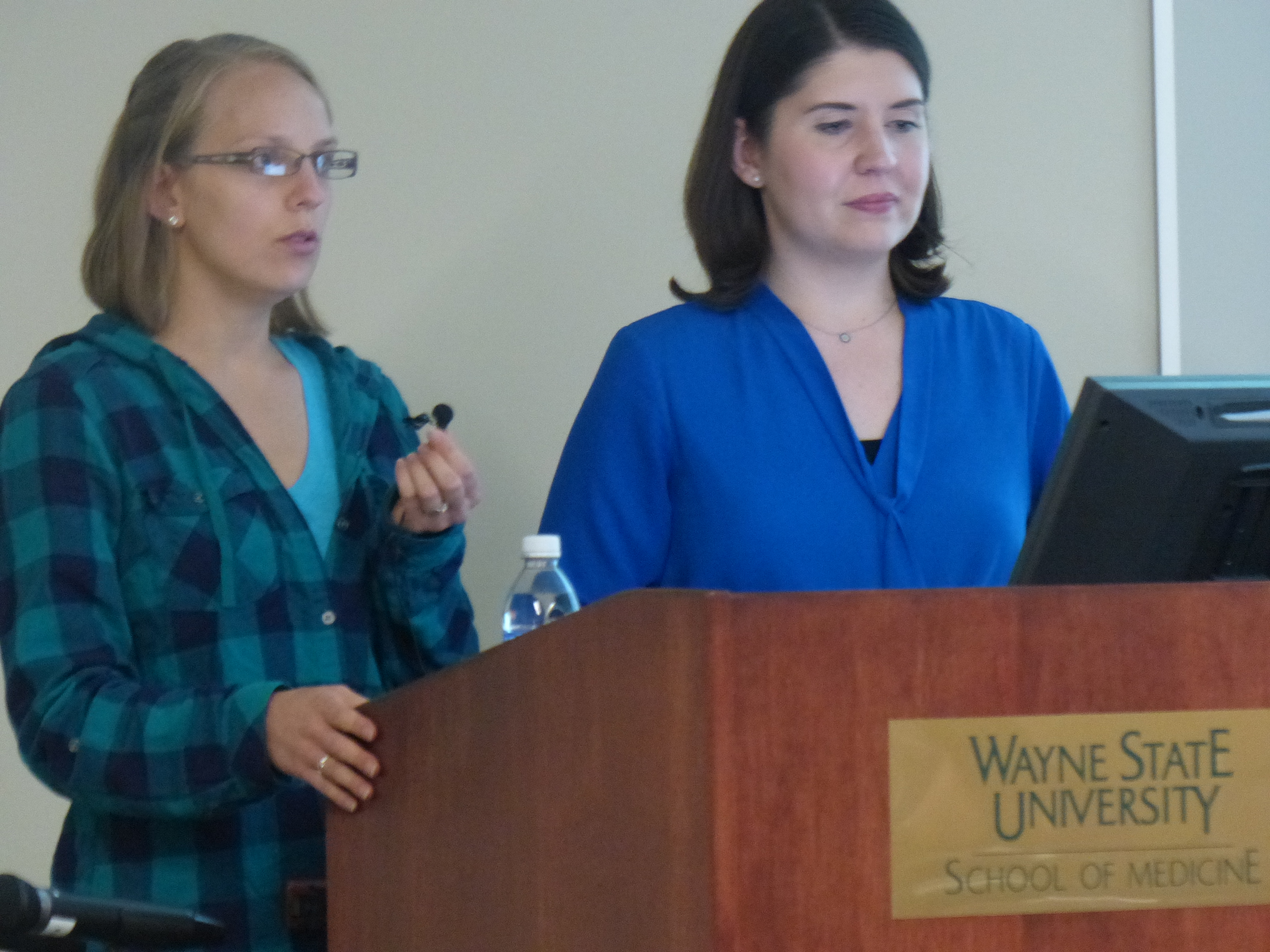NHSC Scholar and Wayne State University School of Medicine Student Plans to Return to her Rural Roots
 Cara Crawford-Bartle, a fourth-year student in Wayne State University's School of Medicine, grew up in West Branch, a small town located in Northern Michigan where she developed a strong awareness about the need for medical professionals in rural communities. She became interested in a possible healthcare career in middle school, but was a bit daunted by the additional years of school required by a medical degree. "My hometown wasn't known for producing physicians and I wasn't sure I could handle the additional four years of schooling after undergrad," said Crawford-Bartle.
Cara Crawford-Bartle, a fourth-year student in Wayne State University's School of Medicine, grew up in West Branch, a small town located in Northern Michigan where she developed a strong awareness about the need for medical professionals in rural communities. She became interested in a possible healthcare career in middle school, but was a bit daunted by the additional years of school required by a medical degree. "My hometown wasn't known for producing physicians and I wasn't sure I could handle the additional four years of schooling after undergrad," said Crawford-Bartle.
Doubts about attending medical school began to diminish when she applied for and was selected as a candidate to attend the WSU School of Medicine upon completion of her undergraduate degree at Northern Michigan University as part of the MedStart program. MedStart is a selective program which guarantees admission to the WSU School of Medicine after completing undergraduate studies.
After earning her undergraduate degree, Crawford-Bartle applied to become a National Health Service Corps (NHSC) Scholar and was accepted to the program. The NHSC is a federally funded program that provides scholarships and loans in exchange for practicing in rural and urban communities with limited access to health care. "I was excited about the idea of securing employment in an underserved area upon completion of medical school, in addition to the obvious financial benefits of the scholarship," said Crawford-Bartle. As an NHSC Scholar, she receives a full-tuition scholarship, a monthly stipend and an additional stipend for textbooks, supplies and travel. In exchange for four years of financial support, she will work for four years in a facility located in a medically underserved area.
Crawford-Bartle recently shared her NHSC Scholar experience with a group of WSU Medical Students at the 2016 NHSC Community Day, a program sponsored by Michigan Area Health Education Center and presented by the Michigan Center for Rural Health that educates healthcare students about the NHSC Loan Repayment Program. The NHSC Loan Repayment Program is similar to the NHSC Scholar program except that students apply for the program after school and the NHSC repays student's tuition loans up to a certain amount yearly in exchange for practicing in underserved areas.
During her years as a medical student, Crawford-Bartle has excelled in her studies but has also engaged with the local community through her work with the Robert R. Frank Student Run Free Clinic, the co-curricular Medicine and Political Action in the Community (MPAC) Program and ROCK (Raising Our Community's Knowledge), a group she helped coordinate during her first two years of medical school.
When she graduates in June 2017, Crawford-Bartle plans to practice Family Medicine in a rural area, not unlike the community she grew up in. "Having grown up in a small agricultural community, I am drawn to working in a rural setting in the future and addressing the unique healthcare needs of those living in more isolated areas with limited access to primary care physicians," commented Crawford-Bartle. "I enjoy the challenge of building rapport with patients while trying to treat all aspects of their healthphysiological, psychological and social."
No matter where Cara Crawford-Bartle ends up practicing medicine, it is clear she will remain committed to providing quality healthcare to the underserved and will have a positive impact on her local community.
Photo: Cara Crawford-Bartle speaks at the 2016 NHSC Community Day along with Rachel Ruddock from the Michigan Center for Rural Health